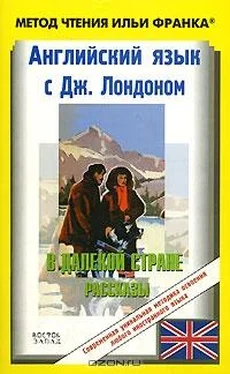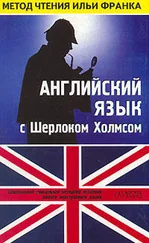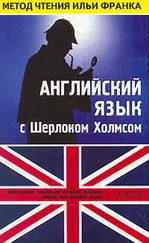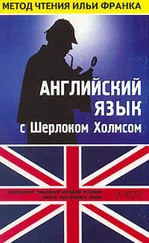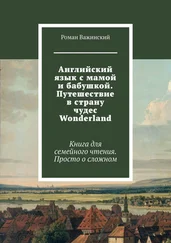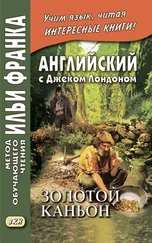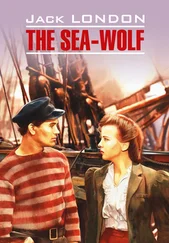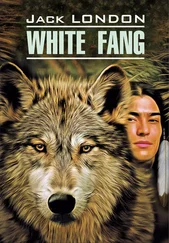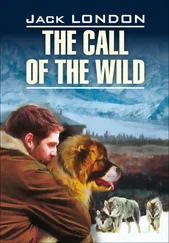explanation ["eksplq'neIS(q)n], witchcraft ['wICkrRft], voice [vOIs]
Klosh-Kwan recited the information brought by Bim and Bawn, and at its close said in a stern voice: "So explanation is wanted, O Keesh, of thy manner of hunting. Is there witchcraft in it?"
Keesh looked up and smiled (Киш взглянул на него и улыбнулся). "Nay, O Klosh-Kwan. It is not for a boy to know aught of witches (это не для мальчика — знать что бы то ни было из колдовства; witch — ведьма, колдунья ), and of witches I know nothing (и в колдовстве я ничего не знаю/не смыслю). I have but devised a means (я только придумал способ) whereby I may kill the ice-bear with ease, that is all (с помощью которого я могу убить полярного медведя с легкостью, вот и все). It be headcraft, not witchcraft (это смекалка, не колдовство; craft — ремесло; ловкость, умение )."
"And may any man (и каждый может)?"
"Any man."
There was a long silence (наступило долгое молчание). The men looked in one another's faces (мужчины глядели на /лица/ друг друга), and Keesh went on eating (а Киш продолжал есть).
aught [Lt], whereby [weq'baI], ice [aIs]
Keesh looked up and smiled. "Nay, O Klosh-Kwan. It is not for a boy to know aught of witches, and of witches I know nothing. I have but devised a means whereby I may kill the ice-bear with ease, that is all. It be headcraft, not witchcraft."
"And may any man?"
"Any man."
There was a long silence. The men looked in one another's faces, and Keesh went on eating.
"And… and… and wilt thou tell us, O Keesh (и ты расскажешь нам, о Киш)?" Klosh-Kwan finally asked in a tremulous voice (Клош-Кван наконец спросил дрожащим голосом).
"Yea, I will tell thee (да, я расскажу тебе)." Keesh finished sucking a marrow-bone (Киш закончил высасывание мозговой кости) and rose to his feet (и поднялся на ноги). "It is quite simple (это довольно просто). Behold (смотри)!"
tremulous ['tremjulqs], behold [bI'hquld], marrow ['mxrqu]
"And… and… and wilt thou tell us, O Keesh?" Klosh-Kwan finally asked in a tremulous voice.
"Yea, I will tell thee." Keesh finished sucking a marrow-bone and rose to his feet. "It is quite simple. Behold!"
He picked up a thin strip of whalebone (он поднял тонкую полоску китового уса) and showed it to them (и показал ее всем). The ends were sharp as needle-points (концы были острыми, как иглы). The strip he coiled carefully (эту полоску он скатал осторожно), till it disappeared in his hand (пока она не исчезла в его руке). Then, suddenly releasing it (затем внезапно освободил ее), it sprang straight again (она сразу распрямилась). He picked up a piece of blubber (он подобрал кусок тюленьего жира).
whalebone ['weIlbqun], carefully ['keqflI], releasing [rI'lJsIN], straight [streIt]
He picked up a thin strip of whalebone and showed it to them. The ends were sharp as needle-points. The strip he coiled carefully, till it disappeared in his hand. Then, suddenly releasing it, it sprang straight again. He picked up a piece of blubber.
"So," he said, "one takes a small chunk of blubber (вот так, — он сказал, — нужно взять маленький кусочек тюленьего жира), thus, and thus makes it hollow (так и так делается в нем ямка; hollow — полый ). Then into the hollow goes the whalebone (потом в эту ямку кладется китовый ус), so, tightly coiled (вот так, хорошенько свернутый), and another piece of blubber is fitted over the whalebone (и другой кусочек жира пристраивается сверху на этот китовый ус). After that it is put outside (после этого он выставляется наружу /на мороз/) where it freezes into a little round ball (где он замерзает в маленький круглый шарик). The bear swallows the little round ball (медведь глотает этот маленький круглый шарик), the blubber melts (жир плавится), the whalebone with its sharp ends stands out straight (китовый ус с его острыми концами распрямляется: «становится наружу прямо»), the bear gets sick (медведь становится больным), and when the bear is very sick (и когда медведь очень болен), why, you kill him with a spear (почему бы тебе и не убить его копьем). It is quite simple."
chunk [CANk], hollow ['hOlqu], spear ['spIq]
"So," he said, "one takes a small chunk of blubber, thus, and thus makes it hollow. Then into the hollow goes the whalebone, so, tightly coiled, and another piece of blubber is fitted over the whalebone. After that it is put outside where it freezes into a little round ball. The bear swallows the little round ball, the blubber melts, the whalebone with its sharp ends stands out straight, the bear gets sick, and when the bear is very sick, why, you kill him with a spear. It is quite simple."
And Ugh-Gluk said "Oh!" and Klosh-Kwan said "Ah!" And each said something after his own manner, and all understood (и каждый сказал что-то по-своему, и все поняли; to understand ).
And this is the story of Keesh (и это сказание о Кише), who lived long ago on the rim of the polar sea (который жил давно на краю полярного моря). Because he exercised headcraft (и потому, что он применял смекалку) and not witchcraft (а не колдовство), he rose from the meanest igloo to be head man of his village (он поднялся из самой жалкой иглу до вождя своей деревни), and through all the years that he lived (и в течение всех лет, что он прожил), it is related, his tribe was prosperous (как рассказывают, его племя было процветающим), and neither widow nor weak one cried aloud in the night because there was no meat (и ни вдова, ни слабый /человек/ не плакали громко ночью, потому что не было мяса = из-за нехватки мяса).
exercise ['eksqsaIz], through [TrH], prosperous ['prOsp(q)rqs]
And Ugh-Gluk said "Oh!" and Klosh-Kwan said "Ah!" And each said something after his own manner, and all understood.
And this is the story of Keesh, who lived long ago on the rim of the polar sea. Because he exercised headcraft and not witchcraft, he rose from the meanest igloo to be head man of his village, and through all the years that he lived, it is related, his tribe was prosperous, and neither widow nor weak one cried aloud in the night because there was no meat.
A DAY'S LODGING
(Однодневная стоянка)
It was the gosh-dangdest stampede (это была сумасшедшая гонка = бегство; by gosh! — черт возьми /выражение изумления, досады/, dang it! — черт побери, stampede — паническое бегство ) I ever seen (/которую/ я когда-либо видел). A thousand dog-teams hittin' the ice (тысяча собачьих упряжек двигалась с большой скоростью = мчалась по льду; to hit — бить ). You couldn't see 'm fer smoke (вы не могли видеть их из-за пара; smoke — туман, дымка; `m = them; fer = for ). Two white men an' a Swede froze to death that night (два белых человека и швед замерзли насмерть той ночью; to freeze ), an' there was a dozen busted their lungs (и дюжина: «там была дюжина» испортила /себе/ легкие; to bust — сломать, разрушить ). But didn't I see with my own eyes the bottom of the water-hole (но разве я не видел своими собственными глазами дно проруби)? It was yellow with gold like a mustard-plaster (оно было желтое от золота, как горчичник). That's why I staked the Yukon for a minin' claim (вот почему я застолбил /участок/ на Юконе для заявки на открытие рудника; stake — кол, столб; рисковать; to stake out a claim — отмечать границы участка, заявлять права; mining — горный, рудный ). That's what made the stampede (вот что послужило причиной гонки). An' then there was nothin' to it (а потом там ничего не оказалось: «было ничто»). That's what I said — NOTHIN' to it (вот что я сказал — ничего). An' I ain't got over guessin' yet (я так до сих пор и не знаю, чем это объяснить: «не перестал гадать об этом»; ain't — have not; to get over — преодолевать что-либо, покончить с чем-либо; guess — угадать, догадываться ). — NARRATIVE OF SHORTY (рассказ Шорти).
Читать дальше
